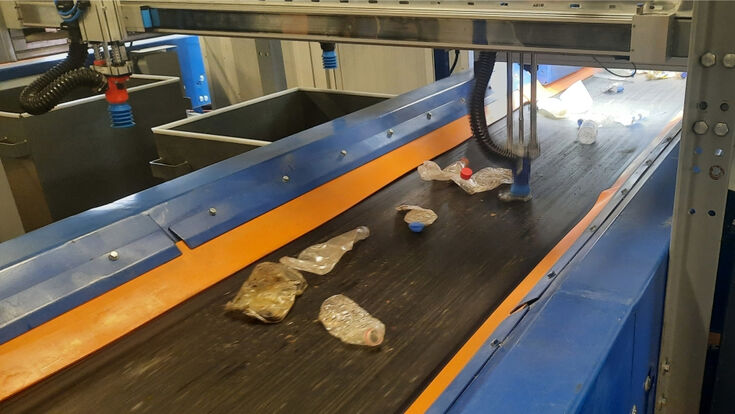Fostering Source Effectiveness and Environmental Management Through Fluid Waste Elimination Programs
In the realm of ecological stewardship, the management of fluid waste stands as an essential juncture where source performance and ecological protection converge. Fluid waste elimination programs play a pivotal duty in securing our environments and making sure lasting growth techniques. By thoroughly attending to the disposal of fluid waste, areas and sectors can not just mitigate prospective threats yet likewise unlock possibilities for reusing and repurposing valuable sources. As we navigate the complexities of waste management in a quickly evolving world, the synergy between ingenious innovations, strict guidelines, and forward-thinking approaches comes to be increasingly critical. Via a lens of proactive involvement and calculated insight, the landscape of liquid waste management unveils a tapestry of obstacles and possibilities that beckon us to explore the course in the direction of a greener and more sustainable future.
Importance of Fluid Waste Elimination
The value of liquid waste removal hinges on its crucial duty in protecting ecological health and securing public well-being. Liquid waste, otherwise properly handled, can present severe hazards to environments, water resources, and human health. Through effective elimination procedures, damaging substances such as chemicals, pollutants, and virus are prevented from polluting the environment and triggering harmful effects.
Correct fluid waste removal likewise helps in preventing the spread of conditions and minimizing the possibility for groundwater contamination. By securely dealing with fluid waste, the threat of waterborne ailments and pollution-related health and wellness concerns is dramatically reduced - Reclaim Waste liquid waste removal. Additionally, effective elimination methods add to preserving the general cleanliness and visual appeals of communities, consequently improving the lifestyle for residents
Furthermore, liquid waste elimination plays a vital role in supporting lasting growth and making sure compliance with ecological policies. By adhering to correct waste monitoring procedures, industries and businesses can minimize their environmental footprint and show company responsibility. Eventually, buying robust liquid waste elimination programs is essential for promoting ecological stewardship and cultivating a healthier, more secure future for all.

Advantages of Effective Disposal
Efficient disposal of liquid waste not just safeguards ecological health and wellness and public well-being yet likewise generates various benefits that extend beyond prompt control steps. One key benefit of reliable disposal is the decrease of air pollution in water bodies and dirt. By correctly managing fluid waste, the threat of contamination decreases, protecting and protecting environments biodiversity. In addition, reliable disposal practices add to resource conservation. With procedures like reusing and power healing, beneficial sources can be removed from fluid waste, promoting sustainability and lowering the pressure on raw products. Embracing effective disposal methods can lead to set you back savings for areas and companies. By maximizing waste administration procedures, companies can enhance operations, minimize disposal costs, and possibly generate profits with the sale of recycled materials. In general, the benefits of efficient fluid garbage disposal are complex, incorporating ecological protection, source efficiency, and financial benefits.
Technologies for Waste Therapy
Utilizing innovative innovations for waste therapy plays a vital duty in making certain the effective administration and safe disposal of fluid waste. One of the key innovations used in fluid waste treatment is organic treatment. This method website link utilizes microorganisms to break down raw material in the waste, transforming it into harmless byproducts. Another common modern technology is chemical treatment, where chemicals are included in the waste to reduce the effects of unsafe elements or speed up pollutants for removal. Physical treatment approaches, such as purification and sedimentation, are additionally extensively used to separate solids from liquid waste.
In addition, thermal treatment methods such as incineration can be used for the full destruction of unsafe elements in fluid waste. On the whole, the assimilation of varied treatment technologies makes certain thorough and environmentally friendly management of fluid waste.
Role of Rules and Conformity
In the realm of liquid waste administration, adherence to regulatory frameworks and compliance requirements is paramount for guarding ecological health and wellness and sustainability. Laws play a vital function in governing the appropriate handling, treatment, and disposal of liquid waste to read stop harm to communities and human health. By establishing clear guidelines and requirements, governing bodies make sure that companies and individuals entailed in fluid waste monitoring operate in an eco responsible manner.
Conformity with these guidelines is not just a lawful requirement however also an ethical commitment to shield the setting for future and present generations. It includes implementing best methods in waste collection, treatment, disposal, and transportation to reduce environmental effect and promote resource performance. Non-compliance can lead to fines, lawsuit, and reputational damage for companies, highlighting the significance of supporting regulative requirements.

Future Trends in Waste Administration

One more essential fad in waste monitoring is the adoption of innovative data analytics and expert system to enhance waste collection paths, improve sorting processes, and boost overall functional efficiency. These innovations enable waste management companies to make data-driven decisions, bring about set view it now you back savings and ecological benefits.
Moreover, there is a growing emphasis on the development of decentralized waste monitoring systems, such as onsite therapy facilities and mobile waste handling systems. These systems provide versatility and scalability, enabling more efficient waste handling in diverse atmospheres.
Verdict
To conclude, cultivating source effectiveness and ecological defense via fluid waste elimination programs is critical for sustainable growth. Reliable disposal methods, progressed technologies for waste treatment, and stringent policies play essential functions in lessening environmental influence. Looking in advance, constant technology and improvement in waste monitoring methods will certainly be important for attending to the expanding difficulties of liquid garbage disposal.
In the realm of environmental stewardship, the management of liquid waste stands as an important time where resource performance and ecological defense converge (Reclaim Waste).Utilizing sophisticated technologies for waste treatment plays a vital role in guaranteeing the effective monitoring and risk-free disposal of fluid waste.In the world of fluid waste administration, adherence to regulative frameworks and compliance criteria is extremely important for guarding environmental health and sustainability.In final thought, cultivating source efficiency and environmental security through liquid waste elimination programs is crucial for lasting advancement. Looking ahead, constant innovation and improvement in waste administration practices will certainly be necessary for attending to the growing difficulties of fluid waste disposal